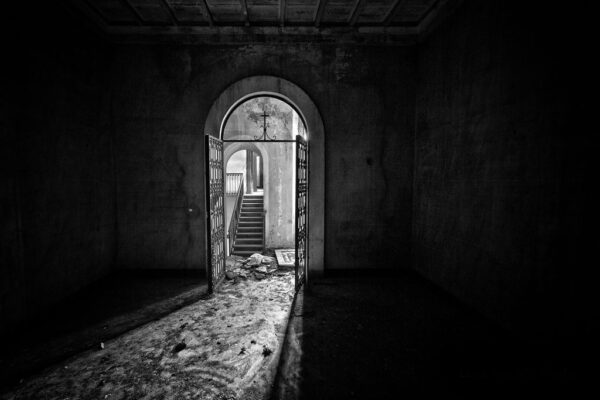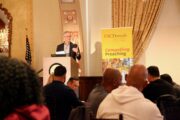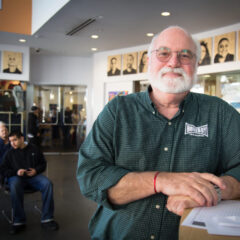This post was originally published on Trans/Missions, the USC Knight Chair in Media and Religion site.
The sky is falling and apparently it’s taking organized religion with it.
That’s the take-away message in a recent Los Angeles Times opinion piece by William Lobdell. Starting with novelist Anne Rice‘s defection from the Catholic Church (or more accurately, her most recent defection) and then citing evidence from recent Pew Forum surveys charting the uptick in the number of religiously unaffiliated, Lobdell proclaims that not only is Christianity in America “not well” but that “its condition is more critical than most realize—or at least want to admit.”
Lobdell—a former LA Times religion reporter and himself a convert to, and from, a number Christian denominations—concludes that “many people who call themselves Christian don’t really believe, deep down, in the tenets of their faith. In other words, their actions reveal their true beliefs.”
These bold assertions about the dominant religion in the U.S. give us an opportunity to explore how journalists use surveys to bolster the stories they tell. “If it bleeds it leads,” as the old saying goes, but these days we might well add, “It only matters if you can measure it,” or maybe, “If you can’t quantify, you must modify.”
Numbers and statistics can seem undeniably authoritative, but journalists—who are supposed to question everything—have to look not only at the agenda of the purveyors of the statistics they report but also at the trends hiding behind the headlines in the press releases. Case in point: a recently published book titled Sex, Drugs, and Body Counts: The Politics of Numbers in Global Crime and Conflict (reviewed here) presents several cautionary tales for journalists, as well as media consumers, about what to trust—or not—in the facts and figures that shape the news.
How does this healthy skepticism apply to Lobdell and Rice? Both decry what they see as the hypocrisy of religious leaders as one of the reasons that Christianity in peril. Lobdell writes that Rice is leaving the Catholic fold “in the name of Christ” for a spiritual path of her own because she is “unable to reconcile the Gospel message with religious institutions covered with man’s dirty fingerprints.”
A 2009 Pew survey of religious conversion and affiliation does note that those who leave religious traditions are often disaffected, in part, by what they call religious hypocrisy. Still, it’s hardly news that many believers consider their faith a private matter and keep institutional authority at arm’s length. And if you probe a little deeper, you can find data in the Pew survey that undermines the hypocrisy thesis. For example, only 2 percent of former Catholics cited the most egregious acts of institutional betrayal—sexual abuse by clergy and other authority figures—as the main reason for their becoming unaffiliated.
What’s missing from much of the reporting based on surveys from Pew and other organizations is a sense of historical perspective. The stories told by Rice and Lobdell in many ways mirror the broad arc of American Christianity, which can be characterized as an ongoing process of affiliation, un-affiliation and re-affiliation, whether from Catholicism to Protestantism or between different Protestant denominations or to completely novel religious movements.
Ironically, the 2009 Pew study reveals that people raised as “religious nones” have the highest re-affiliation rate of any major religious group; most eventually join an established religious tradition. The study goes on to show that “among both those who were raised Catholic and Protestant who are now unaffiliated, for example, roughly one-in-three say they just have not found the right religion yet.”
This suggests that the real story may not be about the decline of Christianity (or other traditions) but, rather, that the real American religion—Radical Individualism—continues to thrive in the current spiritual landscape. As journalists work to make sense of emerging religious trends at home and around the world, they should remember that statistics are at best a snapshot; they rarely capture the whole scene or tell the whole tale.
Photo Credit: Luca Rossato/Flickr
Richard Flory is the executive director of the USC Center for Religion and Civic Culture.
Brie Loskota is the former executive director (2016-2021) of the USC Center for Religion and Civil Culture.






